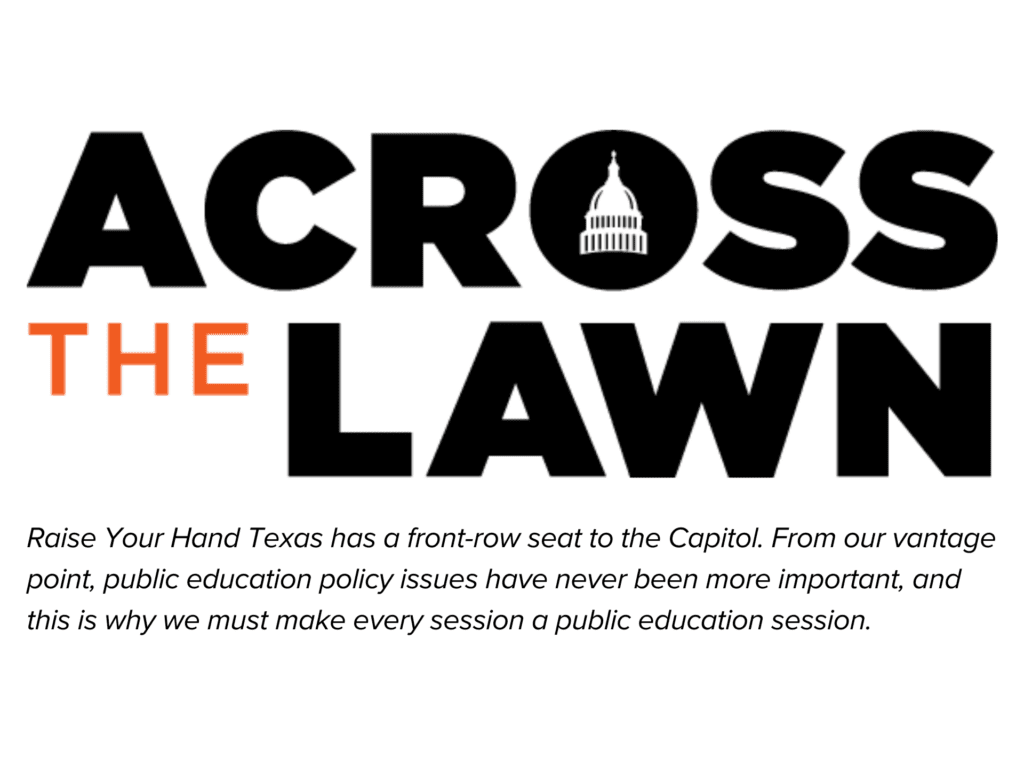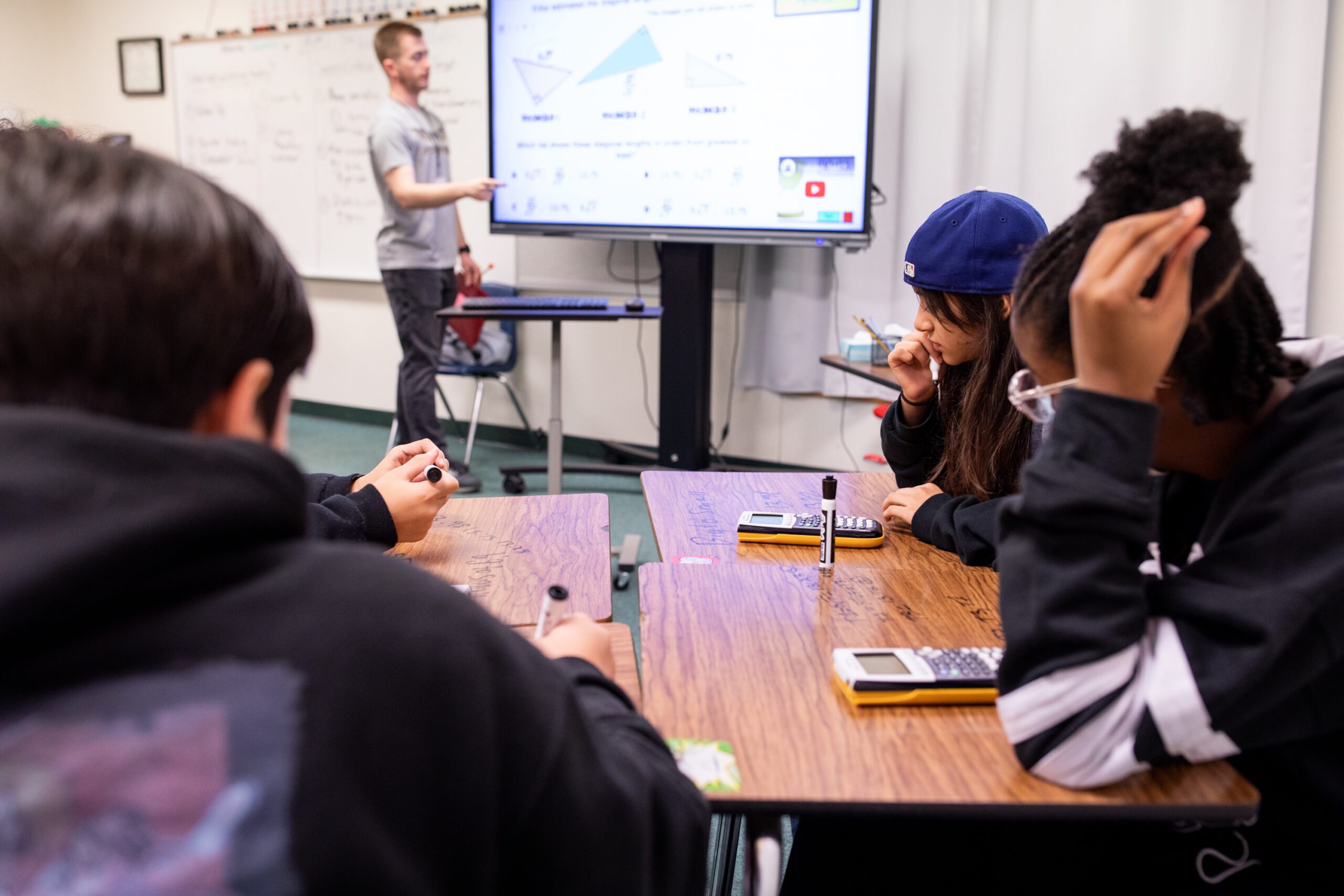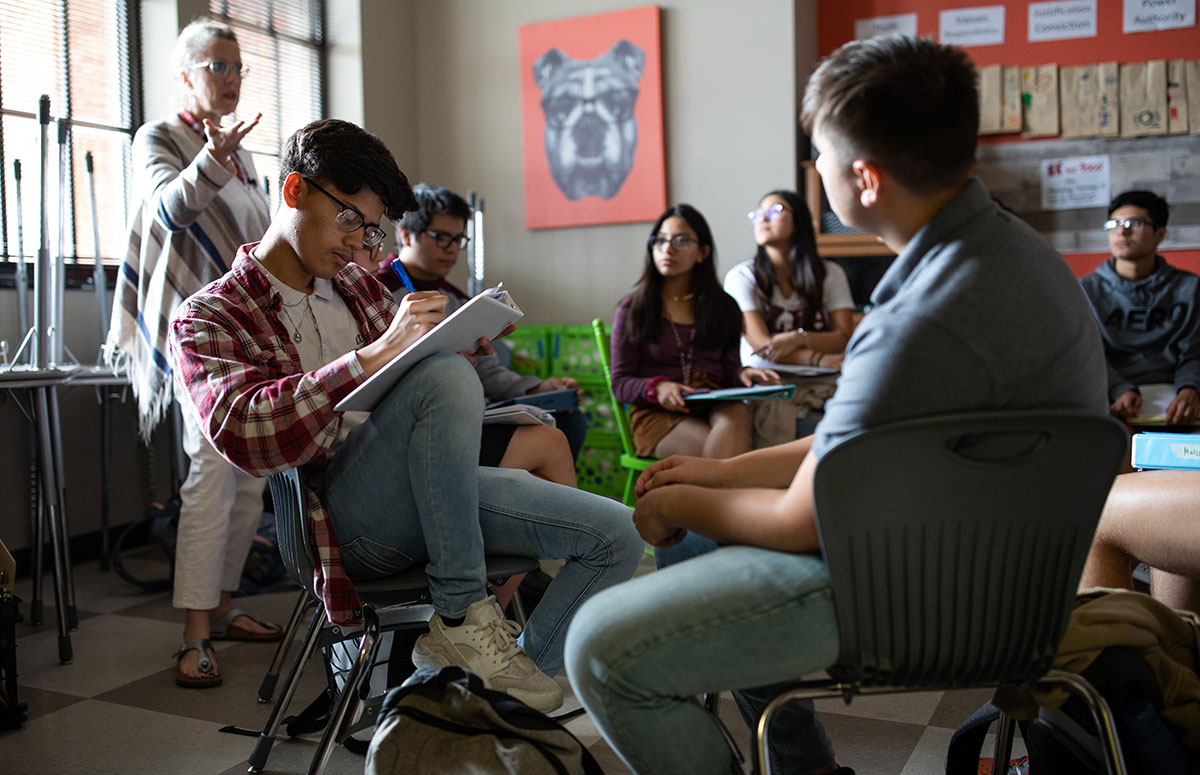
categories
Across the Lawn – July 31, 2025

July 31, 2025

Watch New Assessment & Accountability Video
Real change for Texas’ school accountability system is possible.
Texans have made it clear: we need to build a better report card that measures more than a single test on a single day.
This Special Session gives us another chance to reimagine accountability—one that puts students before state politics. We believe accountability is necessary, but it must be reformed to accurately measure what is taking place and truly matters in our schools.
1. STAAR Rescoring Results Raise Concerns
STAAR rescoring results continue to raise concerns about the state’s use of automated scoring engines for written responses on the STAAR test. Extended constructed responses on the STAAR test ask students to write longer answers that show their thinking, use of evidence, and writing skills. The new STAAR rubric focuses on clarity, organization, and alignment with grade-level expectations. While the goal is to better reflect student understanding, it also makes scoring more complex, especially when automated scoring engines are involved.
As reported by The Dallas Morning News, Dallas Independent School District submitted roughly 450 third-grade tests for rescoring, and 85% of them resulted in higher scores. In nearly 40% of cases, the students’ scores went up by 4 points or more on a 10-point scale. Statewide, about 70% of third-grade tests that a human rechecked also improved.
Superintendent Stephanie Elizalde stated, “One time may be an outlier. I consider two times a pattern.”
These concerns were also central to a lawsuit brought by school districts in 2024, challenging the use of computer scoring and recent changes to the accountability system. Earlier this month, a state appeals court ruled against the districts, siding with the Texas Education Agency (TEA) and affirming the validity of automated scoring.
But even with the court’s decision, these scoring inconsistencies show that more work is needed.
Raise Your Hand Texas believes it’s time to improve the state’s current assessment system for our 5.5 million students.
2. United States Department of Education Releases Frozen Funds to Schools
The U.S. Department of Education (USDE) will release over $660 million in federal funding to Texas schools after holding the funds for nearly a month. The delay stemmed from a national review of several education programs that support afterschool services, English Language Learners, and migrant students.
During the hold, many districts across the state faced budget uncertainty, with some warning of possible job losses and program cuts.
The release of funds follows legal pressure from school districts, teacher groups, and education nonprofits who raised concerns about the lack of clear authority or timeline for the delay. While this decision brings relief, it also highlights how critical consistent and transparent funding is to district operations and student support.
USDE notified the Texas Education Agency that it would begin releasing the remaining federal grant allocations beginning the week of Monday, July 28, 2025.
3. Accountability Ratings Released Following Court Ruling
The Texas Education Agency (TEA) will publicly release both the 2024 and 2025 A-F academic accountability ratings on August 15, 2025. The 2024 ratings were delayed for nearly a year due to a lawsuit, but a recent court ruling cleared the way for their release. This marks the first time the agency will make the 2024 ratings publicly available, alongside the regularly scheduled release of 2025 ratings. Both years of ratings will be viewable on TXschools.gov, allowing parents, educators, and communities to see historical trends and current performance in one place.
Along with the ratings, TEA will also publish key accountability tools, including the updated Consecutive Years Unacceptable Performance list. This list identifies campuses that have received multiple years of unacceptable ratings and may face state interventions.
4. Taxpayer-Funded Lobbying Ban Moves Forward in Senate
On Wednesday, July 30, the Texas Senate debated and passed Senate Bill 12 (SB 12), a bill that bans taxpayer-funded lobbying by local governments. The measure would bar cities, counties, and school districts from spending public funds on hiring lobbyists or paying dues to associations that lobby the Legislature. The bill includes enforcement provisions that allow taxpayers to seek injunctions and recover attorneys’ fees if the law is violated. Senators revisited the issue after similar legislation failed to pass during the regular session.
How it would impact school districts:
- School districts could no longer hire professional lobbyists to represent their interests during the legislative session.
- Districts would not be allowed to pay membership dues to any association that employs registered lobbyists.
- Superintendents, school board members, and employees could still talk to lawmakers, testify, or travel to the Capitol, provided their actions do not meet the threshold for lobbyist registration.
- Any taxpayer or resident could sue a district for violating this law and would be entitled to attorney’s fees if they win.
5. Focus Shifts to City and County Spending Tax Caps After Billions in School Property Tax Relief
After allocating more than $3.5 billion during the 89th Legislative Session toward reducing school district property taxes, Gov. Greg Abbott is now turning his attention to city and county spending. His latest proposal would cap how much local governments can increase their budgets, tying growth to population and inflation. Gov. Abbott has said he wants to campaign on the issue like he did with vouchers and bail restrictions he successfully pushed through the legislature earlier this year.
While local governments could still raise spending through voter approval, the restrictions would layer onto existing rules, including the 3.5% cap on local tax increases without an election.



